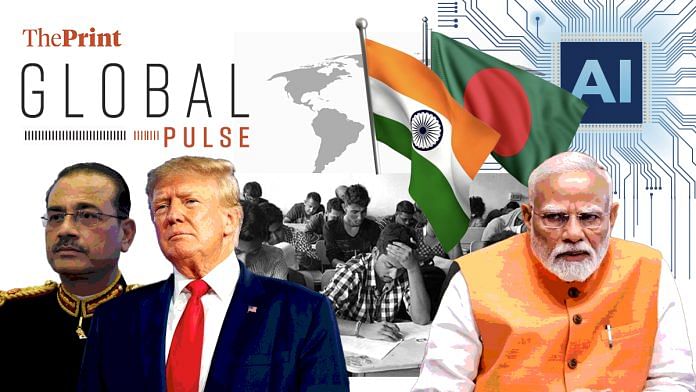New Delhi: India’s civil services examinations are even more competitive than China’s, despite the latter testing candidates’ knowledge of the Xi Jinping Thought, the ideology crafted by the Chinese premier, said The Economist. But “meritocratic intentions” aren’t enough. Critics say a focus on rote learning and test-taking has contributed to the “middling performance” of both bureaucracies.
“On a measure of government effectiveness calculated by the World Bank, China and India rank in the 74th and 68th percentiles globally. Nor do the exams help eliminate corruption, another common scourge. On June 9th, in the latest high-profile example of bureaucratic graft, a young Indian civil servant in the eastern state of Odisha was accused of accepting a bribe of 1m rupees ($11,683) from a businessman,” says the article.
In its Opinion newsletter, The Economist said India’s stint at the G7 summit did not “go as planned”. Instead of forging ties with India, Trump left without meeting Prime Minister Narendra Modi. And to add salt to the wound, Pakistani Field Marshal Asim Munir was invited to Washington, the magazine said.
“Why have India’s efforts fallen short? They appear to have relied too much on the relationship forged between Mr Modi and Mr Trump during his first term. Mr Trump is now more transactional, unpredictable and dismissive of his own staff’s advice. Despite talk of warming relations, America has not spared India from its trade and immigration offensives,” said the article.
“While American officials see India as a counterweight to China, they also want to prevent Pakistan moving deeper into China’s orbit. And Pakistan has sought to cultivate ties with Trump family members, partly by presenting itself as a cryptocurrency hub,” it added.
Generative AI is reshaping the future of work—and one version of this future is unfolding in Gurgaon’s call centres. In 2023, the Paris-based employer of a Gurugram-based worker installed an “accent-altering software” which altered his accent to make his “speech more understandable to American clients on the other end of the line”. The worker in question had tried everything in the book to make his accent more palatable to the Americans, until AI came to his rescue.
“We don’t see AI as taking jobs away,” M.V. Prasanth, the chief operating officer for Teleperformance in India, told The Washington Post. “We see it as easier tasks being moved into self-serve,” allowing Kumar and his colleagues to focus on “more complex tasks”.
“Those who use the software are engaging in “digital whitewashing”, critics say, which helps explain why the industry prefers the term “accent translation” over “accent neutralisation.” But companies say it’s delivering results: happier customers, satisfied agents, faster calls,” the report said.
India is also in the limelight for the deportation of “thousands” of Muslim citizens to Bangladesh, Hannah Ellis Peterson and Shaikh Azizur Rahman write in The Guardian.
According to the report, thousands of people, largely Muslims suspected of being illegal immigrants from Bangladesh, have been rounded up by police across India in recent weeks, according to human rights groups, with many of them deprived of due legal process and sent over the border to neighbouring Muslim-majority Bangladesh.
“Among those deported and returned was Hazera Khatun, 62, a physically disabled grandmother. Khatun’s daughter Jorina Begum said they had documents to prove two generations of her mother’s family had been born in India. ‘How can she be a Bangladeshi?’ said Begum,” according to the report.
In its latest India Business Briefing, ‘India needs a new foreign policy beyond diplomat Modi’, The Financial Times studied Donald Trump’s Modi ‘snub’, noting that the Indian prime minister appears to be relying on his first-term relationship with the US President.
However, a “frayed” relationship appears to be on the mend, as Modi and Canadian Prime Minister Mark Carney move to restore regular diplomatic relations, it added.
“In the new global reality of multi-polar chaos, personal friendships do not count for much. India urgently needs friends and supporters, in the region and the west, both for reasons of national security and economic growth. The cross-border skirmishes with China had barely ended before the Pahalgam terror attack hit,” writes Veena Venugopal.
(Edited by Sugita Katyal)
Also read: Air India deals with post-crash ‘chaos’ & why thawing of US-Pakistan ties is turning heads in India




